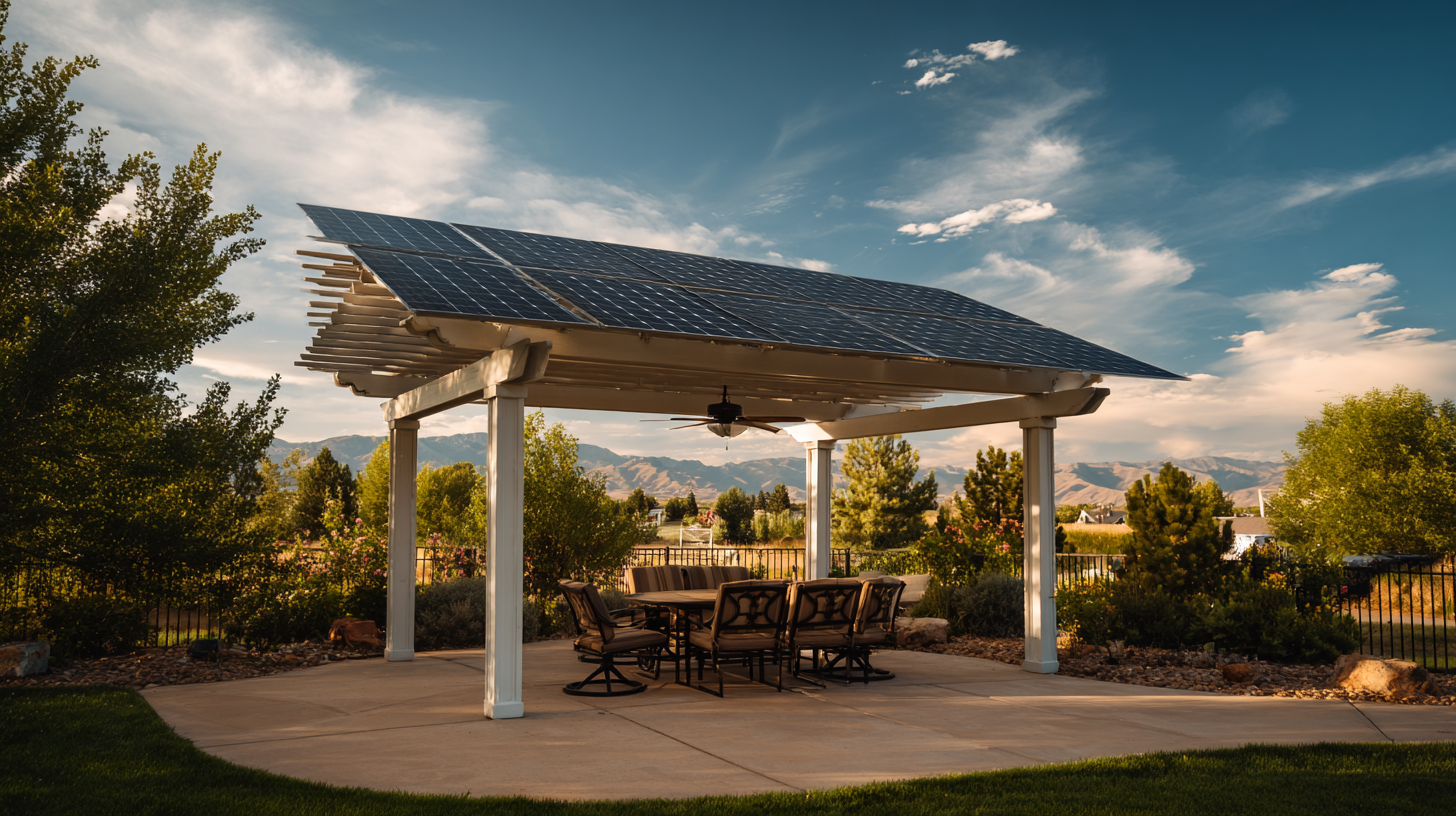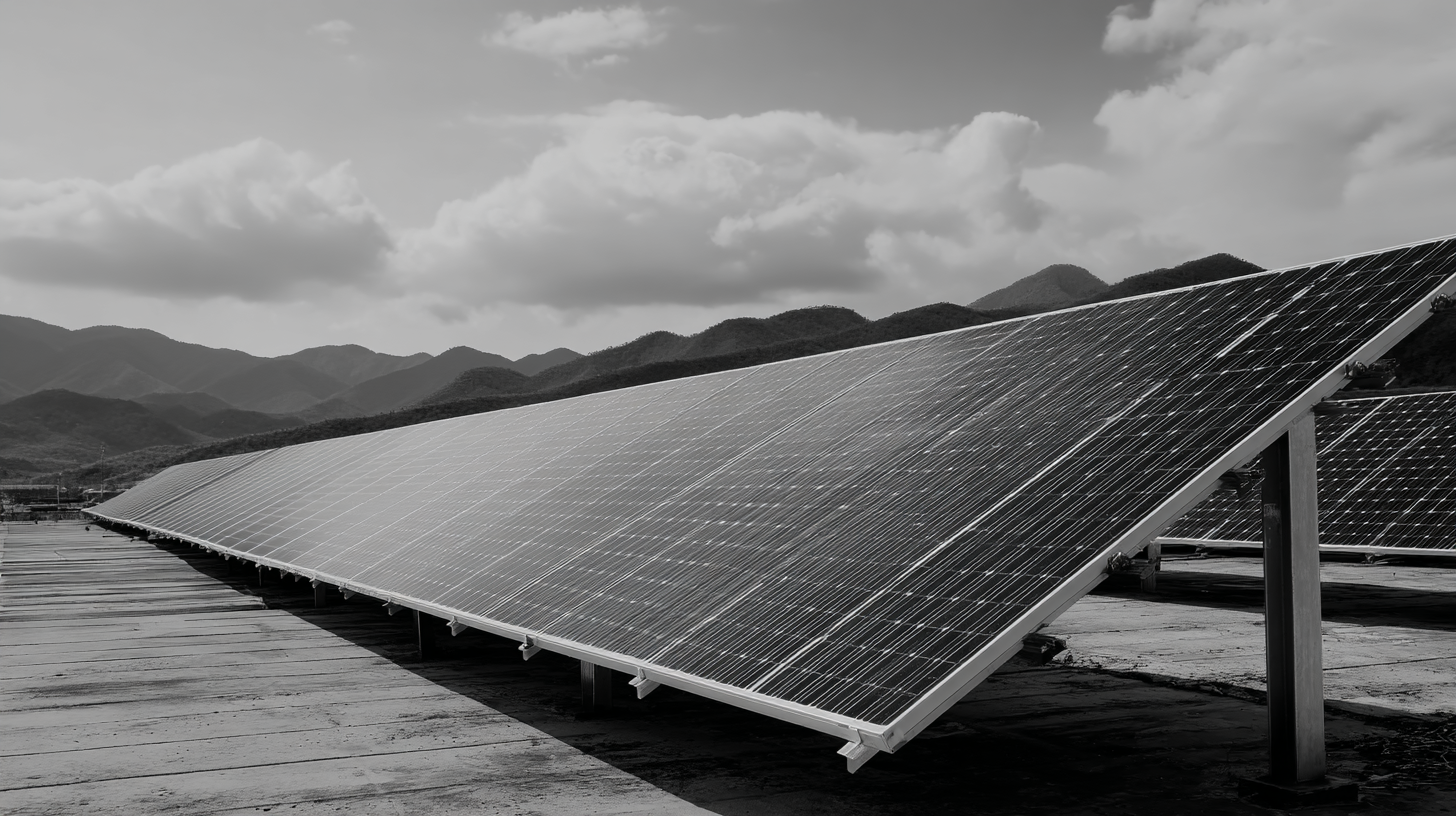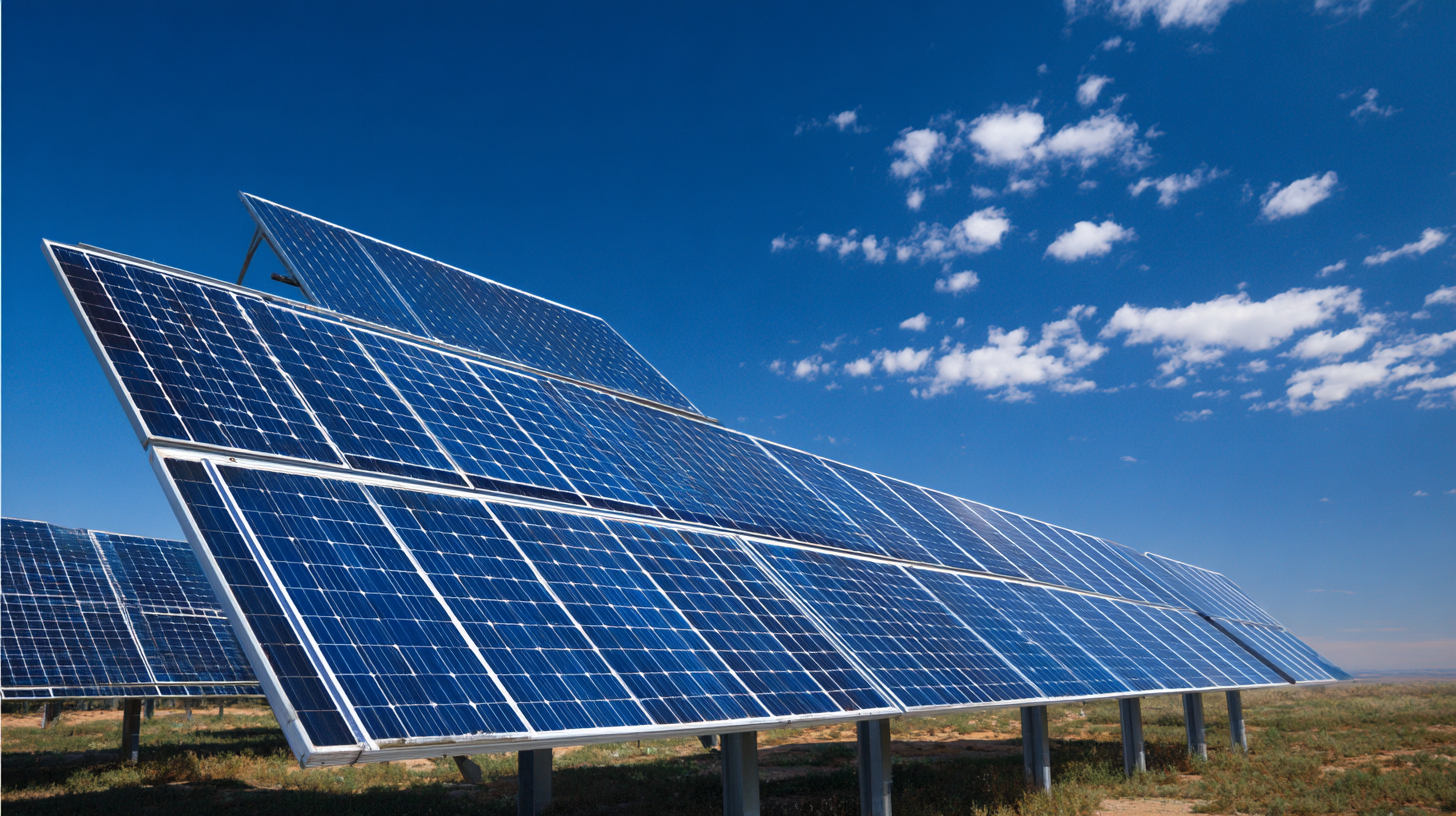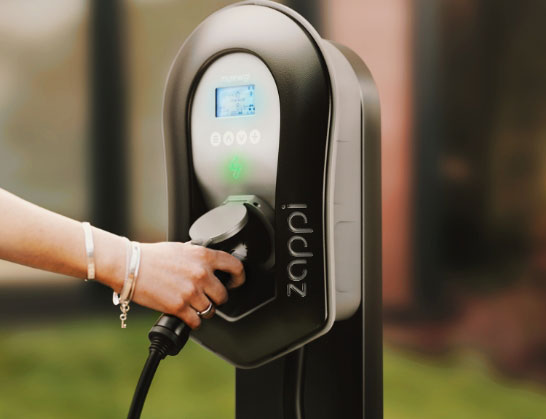Ultimate Guide to Choosing the Best Solar Panels for Your Home: A Global Procurement Perspective
As the global demand for renewable energy continues to rise, choosing the right solar panels for home use has become critical for homeowners seeking sustainable solutions. According to a report by the International Energy Agency (IEA), solar energy could generate over 25% of the world’s electricity by 2050, highlighting the increasing importance of efficient solar technologies. With a burgeoning market, manufacturers offer a myriad of options, making it essential to discern quality from quantity. Key factors such as panel efficiency, warranty, durability, and the manufacturer’s reputation play pivotal roles in ensuring a worthwhile investment. In this ultimate guide, we will explore strategies for selecting high-quality solar panels for your home, along with insights on sourcing them from reputable manufacturers worldwide, equipping you with the knowledge to make informed decisions in this dynamic industry.

Understanding Solar Panel Technology: Types, Efficiency, and Durability
 When choosing solar panels for your home, it’s essential to understand the different types available in the market. Typically, solar panels fall into three main categories:
monocrystalline, polycrystalline, and thin-film.
Monocrystalline panels are known for their high efficiency and sleek design, making them a popular choice for homeowners with limited roof space. In contrast,
polycrystalline panels, while slightly less efficient, offer a more cost-effective solution ideal for larger installations.
Thin-film panels, though the least efficient, provide flexibility and are lightweight, making them suitable for unconventional mounting options.
When choosing solar panels for your home, it’s essential to understand the different types available in the market. Typically, solar panels fall into three main categories:
monocrystalline, polycrystalline, and thin-film.
Monocrystalline panels are known for their high efficiency and sleek design, making them a popular choice for homeowners with limited roof space. In contrast,
polycrystalline panels, while slightly less efficient, offer a more cost-effective solution ideal for larger installations.
Thin-film panels, though the least efficient, provide flexibility and are lightweight, making them suitable for unconventional mounting options.
Efficiency is a critical factor when selecting solar panels, as it directly influences the energy output relative to the space they occupy. Modern solar panels boast efficiencies ranging from 15% to over 22%. While higher efficiency panels often come with a steeper price tag, they can lead to greater long-term savings and quicker returns on investment. Additionally, the durability of solar panels is paramount; opting for panels that come with warranties of 25 years or more indicates a manufacturer's confidence in their product's longevity. This aspect not only assures reliability but also ensures that your investment is safeguarded against performance degradation over time.
Key Factors in Selecting Solar Panels for Your Unique Home Needs
When selecting solar panels for your unique home needs, several key factors should guide your decision. First, consider the efficiency ratings of the panels. Higher efficiency panels convert more sunlight into electricity, making them ideal for homes with limited roof space. Models that achieve over 20% efficiency are often more cost-effective in terms of energy production, despite potentially higher upfront costs.
Another critical aspect is the warranty offered by manufacturers. A comprehensive warranty not only speaks to the durability of the solar panels but also provides peace of mind regarding performance over the years. Look for products that come with at least a 25-year warranty on performance and materials. Additionally, local climate and environmental conditions should influence your choice. For instance, regions with high amounts of direct sunlight will benefit from panels that perform well under such conditions, whereas homes in more temperate areas might require panels that sustain their efficiency across varying weather conditions. By weighing these factors, homeowners can make informed decisions that align both with their budget and energy needs.
Ultimate Guide to Choosing the Best Solar Panels for Your Home: A Global Procurement Perspective
| Feature | Description | Importance | Recommendations |
|---|---|---|---|
| Efficiency | The percentage of sunlight converted to electricity by the solar panel. | High | Consider panels with efficiency above 18% for optimal performance. |
| Warranty | The duration and coverage of the manufacturer’s warranty for the panels. | High | Look for warranties of at least 25 years. |
| Cost | The total price of the solar panels including installation. | Medium | Compare total costs and look for financing options. |
| Durability | The ability of the panels to withstand weather conditions. | High | Select panels rated for extreme temperatures and hail resistance. |
| Aesthetics | The visual appearance of the solar panels when installed on your roof. | Low | Consider options that blend well with your home design. |
| Type of Technology | Monocrystalline, Polycrystalline, or Thin-Film technology used in the panels. | Medium | Choose based on efficiency needs and installation area. |
Evaluating Global Suppliers: What to Look for in Solar Panel Manufacturers
When selecting solar panels for your home, evaluating global suppliers is crucial to ensure you're getting quality and reliable products. According to a recent report from Wood Mackenzie, Chinese manufacturers dominate the solar photovoltaic (PV) module market, showcasing their strong production capabilities and competitive pricing in 2023. With the anticipated growth of the global microinverter market, expected to rise from $4.12 billion in 2024 to $15.4 billion by 2032, it's evident that technological advancements and supplier reputation play a vital role in market dynamics.
Safety and certification are also important considerations when choosing solar panel manufacturers. Underwriters Laboratories (UL), a leader in global product safety testing, has recently certified a major solar division from a prominent thin-film panel supplier, underscoring the necessity of adhering to rigorous safety standards. This certification not only reassures consumers about the reliability of the product but also enhances the manufacturer's standing in a highly competitive market, especially amidst concerns regarding supply chain stability and trade tariffs that have significantly impacted pricing strategies in the sector.
Cost Analysis: Balancing Quality and Affordability in Solar Panel Procurement
When considering solar panel procurement, balancing quality and affordability is essential. In the current market, it's crucial to analyze both upfront costs and long-term savings. High-quality solar panels may demand a higher initial investment, but their durability and efficiency often lead to significant savings on energy bills over time. Therefore, it's important to assess the long-term value of your investment rather than solely focusing on the initial purchase price.
**Tips:** Start by evaluating the performance warranty and degradation rate of the panels. A good solar panel should have a warranty of at least 25 years and a low degradation rate to ensure they maintain efficiency over time. Compare different manufacturers and their offerings to find a balance between cost and performance that suits your specific energy needs.
Additionally, consider financial incentives like government rebates or tax credits available in your region, which can offset initial costs and make high-quality options more accessible. Those incentives can significantly enhance the overall affordability of your solar investment. Make sure to do thorough research on local policies to maximize your savings.
Cost Analysis of Different Types of Solar Panels
Sustainability and Environmental Impact: Choosing Eco-Friendly Solar Solutions
When selecting solar panels for your home, prioritizing sustainability and environmental impact is essential. Eco-friendly solar solutions not only reduce your carbon footprint but also contribute to the preservation of natural resources. Look for solar panels made from sustainable materials, such as those produced with minimal toxic chemicals and renewable resources. Companies committed to ethical manufacturing processes often employ recycling programs for their products, which helps reduce waste in landfills and promotes a circular economy.

In addition to the materials used, consider the efficiency and longevity of the solar panels. High-efficiency models harness more sunlight, which means less land and resources are needed to produce the same energy output. Choosing durable panels that can withstand extreme weather conditions will not only ensure long-term performance but also minimize the need for replacements, further decreasing environmental impact. Investing in solar technology that promises both performance and sustainability supports a greener future while enhancing your home’s energy independence.


